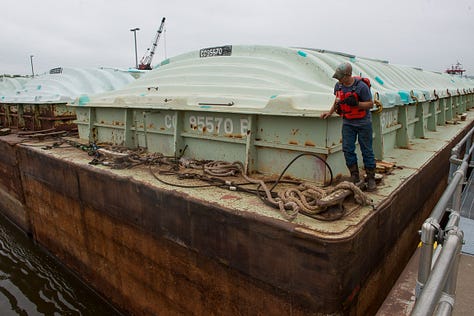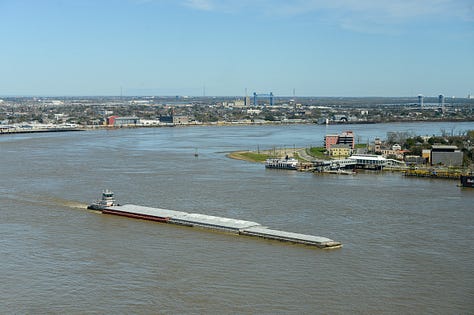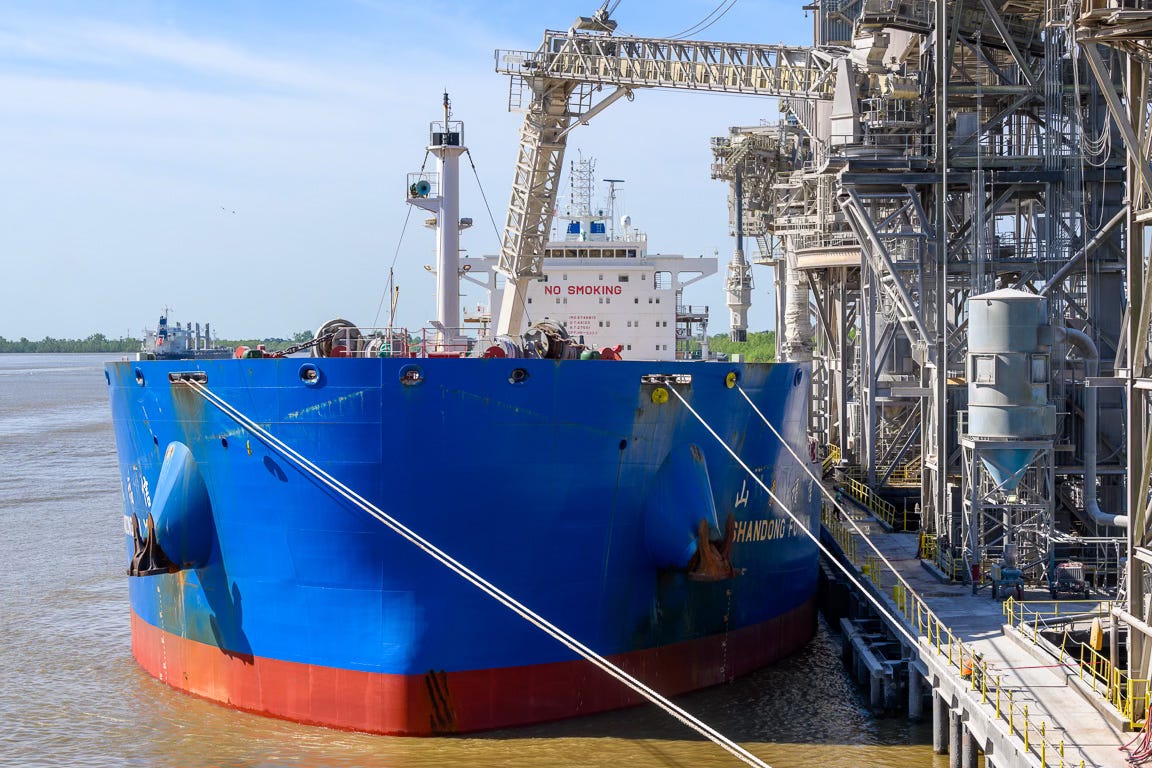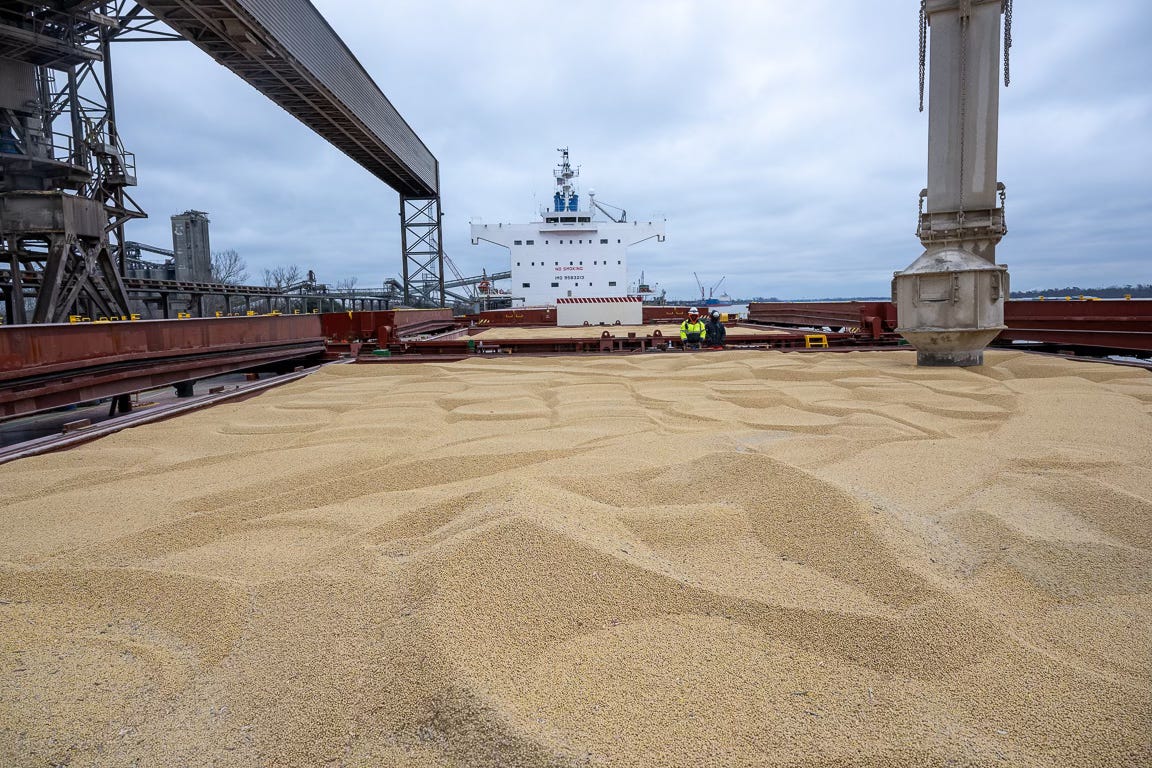Farmers and industry officials met in New Orleans last week to revisit the collaborative work that private, state and federal organizations have been championing for several years.
Experts from the Soy Transportation Coalition, Army Corps of Engineers, Louisiana Department of Transportation and Development (DOTD), and the Big River Coalition joined the United Soybean Board to discuss the project.
The U.S. Army Corps of Engineers continues its dredging operations along the lower Mississippi River, a vital step in maintaining the waterway’s role as a key route for soybean exports. The river, stretching from the Midwest to the Gulf of Mexico, is a vital transportation corridor for U.S. agricultural products, particularly soybeans. Research indicates that approximately 60% of U.S. soybean exports, totaling nearly 1.7 billion bushels in the 2023-24 marketing year, pass through New Orleans and on to international destinations.
Regular dredging is necessary to counteract the natural buildup of sediment, which can narrow the river’s channel and reduce water depth. Without these efforts, navigation becomes challenging for large cargo ships, restricting their size or the volume of goods they can carry. Industry experts note that such limitations could delay shipments, raise transportation costs, and disrupt the supply chain for soybeans, a major U.S. agricultural export.
The Mississippi River's economic impact extends far beyond soybean exports. The lower river generates $151.7 billion in annual revenue and employs 585,423 people, while the upper river adds $253.2 billion and 755,000 jobs, totaling over $400 billion and 1.34 million jobs. The river supports agriculture, manufacturing, tourism, and other sectors.



The United States and competitors like Brazil rank among the world’s leading soybean exporters. Efficient river transport is essential to keeping U.S. soybeans competitive in global markets, where timely delivery and cost-effectiveness are critical. The Mississippi River’s navigability directly supports farmers, exporters, and related businesses by ensuring a steady flow of goods to ports in the Gulf, where they are loaded onto ships bound for overseas buyers.
The Army Corps of Engineers' work remains a priority for maintaining economic stability in the agricultural sector. Stakeholders in the soybean industry continue to monitor the river’s condition, emphasizing its importance to the broader U.S. economy.



